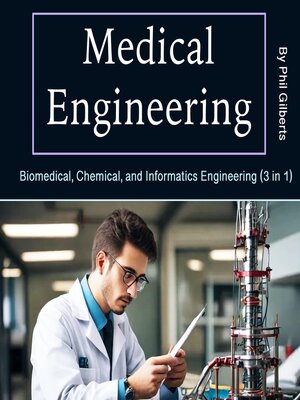Medical Engineering
audiobook (Unabridged) ∣ Biomedical, Chemical, and Informatics Engineering (3 in 1)
By Phil Gilberts

Sign up to save your library
With an OverDrive account, you can save your favorite libraries for at-a-glance information about availability. Find out more about OverDrive accounts.
Find this title in Libby, the library reading app by OverDrive.



Search for a digital library with this title
Title found at these libraries:
| Library Name | Distance |
|---|---|
| Loading... |
This title consists of three books in one, which are the following:
1 - Biomedical Engineering: Biochemical engineering integrates the principles of biology, chemistry, and engineering to develop processes for the large-scale production of valuable biochemicals. This interdisciplinary field plays a crucial role in industries such as pharmaceuticals, biotechnology, food and beverage, and environmental engineering.
One of the fundamental aspects of biochemical engineering is fermentation, which involves the controlled growth of microorganisms like bacteria, yeast, or fungi to produce desired compounds.
2 - Chemical Engineering: Chemical engineering is a multidisciplinary field that integrates principles from chemistry, physics, mathematics, and economics to tackle complex challenges across a diverse range of industries. At its core, chemical engineers focus on efficiently harnessing, transforming, and transporting chemicals, materials, and energy on a large scale. This involves not only designing and optimizing processes but also understanding the fundamental properties of substances and the underlying mechanisms governing their behavior.
One of the primary areas of focus for chemical engineers is process design and optimization. They develop innovative processes for the production of chemicals, fuels, pharmaceuticals, and materials, striving to maximize efficiency, minimize waste, and ensure safety.
3 - Informatics: Informatics integrates principles from various disciplines such as computer science, information theory, cognitive science, and social science to analyze and understand complex systems of information.
It involves the design, implementation, and application of computational solutions to real-world problems, focusing on both the technical aspects of computing systems and the human aspects of information processing and interaction.







